Froome unable to dislodge Quintana in Vuelta a Espana finale
Sky captain settles for second overall on Alto de Aitana
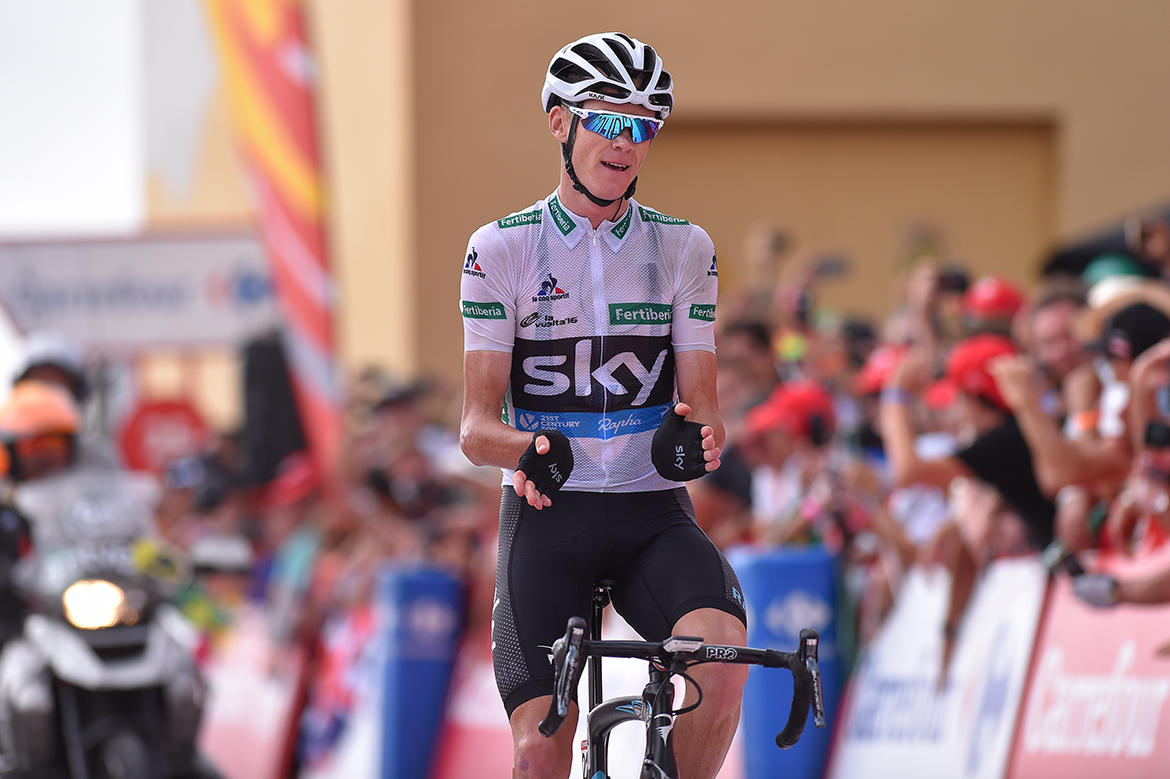
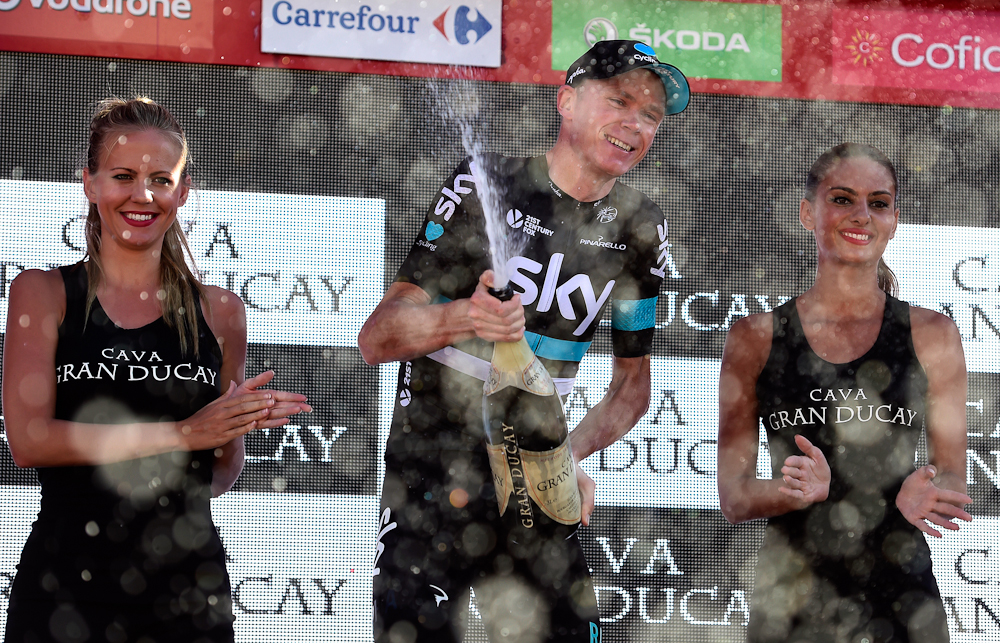
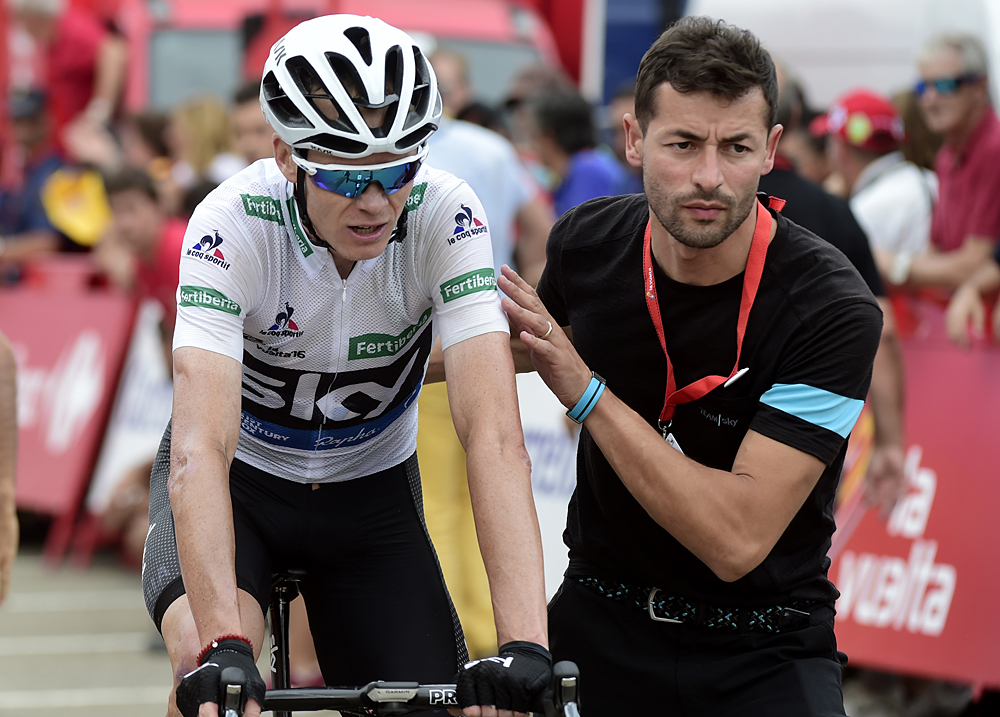
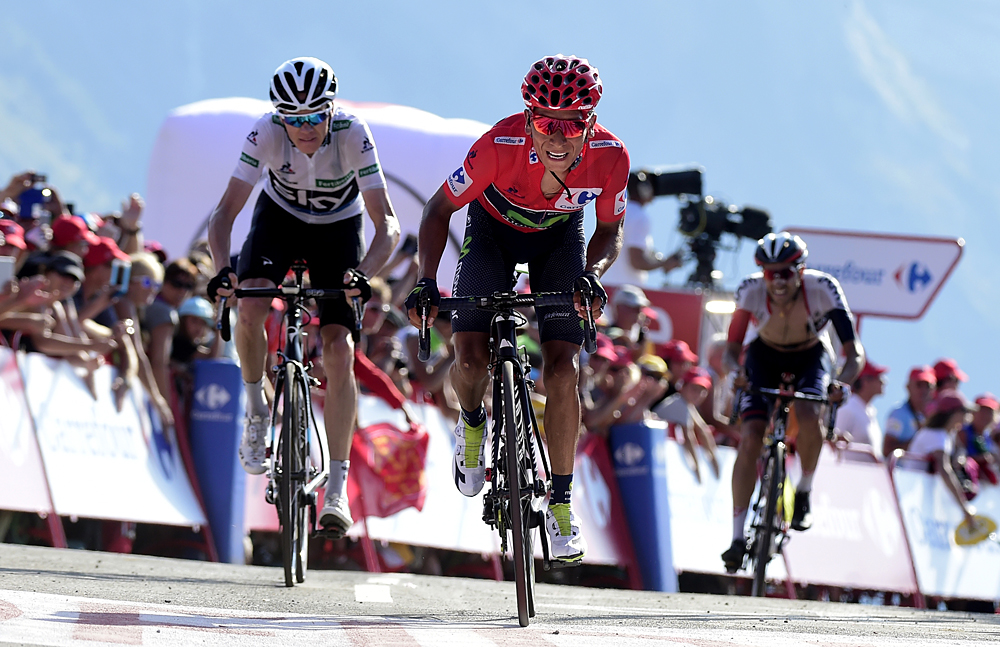
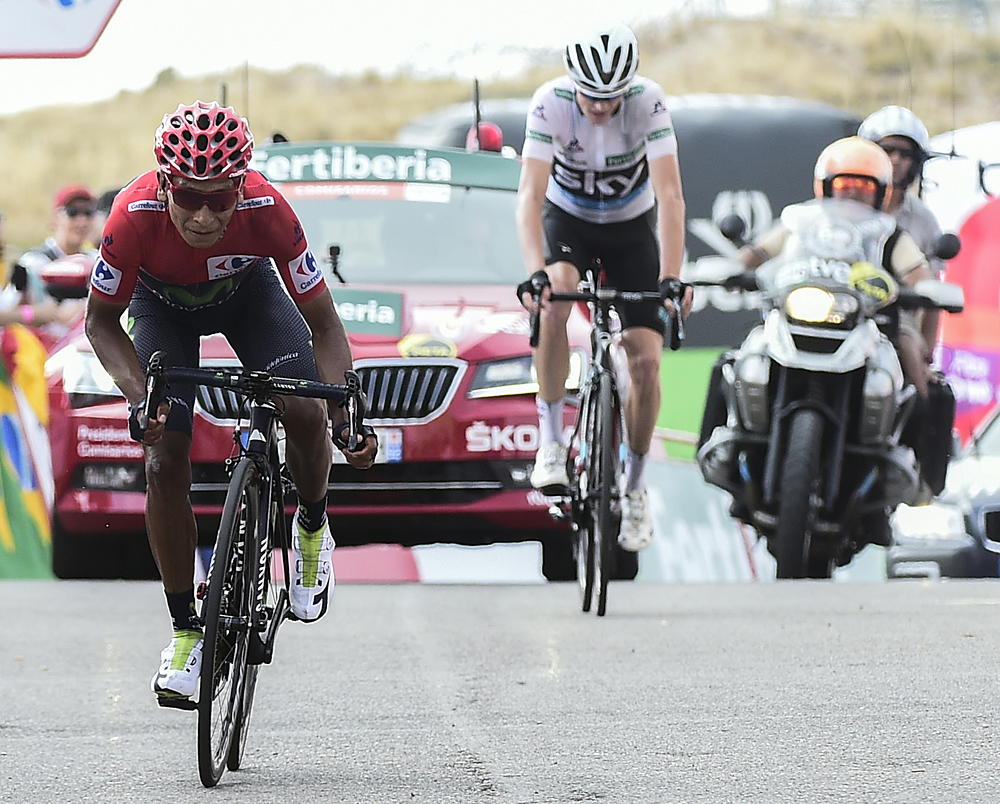
Chris Froome (Sky) launched a blizzard of attacks on the final summit finish of the Vuelta a España to try and shake arch-rival, but finally the Briton will have to settle for second overall after Nairo Quintana (Movistar) tenaciously responded to each of Froome's moves.
Second in 2011, fourth in 2012, second in 2014 and a more than likely second again in 2016, Froome's battle to win the Vuelta continues to be unsuccessful. But the Briton arguably has never come closer than this year, and after his superb time trial in Calp on Friday, the question of whether Vuelta winner Quintana would be able to fend him off in the mountains one last time loomed larger than ever over the race.
Froome and Sky attempted a long-range move early on the stage and an attack over the Tudons, the last second category climb, before the Aitana. But the first was closed down by Tinkoff and the second quickly absorbed by Movistar on the long, twisting descent to the final climb of the day.
Froome then unfurled attack after attack on the final five kilometres of the AItana, the hardest section of the race. But just as when Quintana attacked again and again on the Aubisque a week earlier and was unable to shake off the Briton, this time round it proved impossible for Froome to drop the Colombian.
Froome did not talk to the press at the Aitana finish, turning around and heading straight down the mountain to his team bus seven kilometres further away. But as his sports director Dario Cioni told Cyclingnews at the finish, "it was the last day possible to do something, and we approached it as a one-day race."
"The task was pretty ambitious, to take back 1 minute and 20 seconds on Quintana, but we agreed in the morning that everyone would do everything we could to do this."
"So from the start we went flat out, just wanted to keep the race going and make it hard for Movistar to see if we could crack them, even if with the riders they've got, it's not easy."
Get The Leadout Newsletter
The latest race content, interviews, features, reviews and expert buying guides, direct to your inbox!
Having David López in the break was a point in Sky's favour, Cioni said, "and we kept trying at every opportunity. With David, we chose to pull him back, just to make sure we had everything for Chris, rather than potentially going for the stage."
Cioni praised Froome for having been able to back up "what was a huge effort in yesterday's [Friday's] time trial with a big effort on the climb. But we've seen that he and Nairo were pretty much equal on the climbs here in the second part of the Vuelta.
"It was a long climb, more than a hard one in terms of gradients. I think 15 years ago, this would have a been a hard finish, before they had the Angliru. But now you get much more difficult climbs in the Vuelta."
As for the question of what happened in Aramon-Formigal, which might have cost Froome the Vuelta, Cioni said "you can take away a lot of things from there. There was awareness about the difficulty of the start, but maybe in the future the guys will understand why when you say it's a difficult start, that's what you mean."
"I think the team is more used to defend than attack, and that maybe didn't help us there, because we look more at the ends of stages that the starts. But it's a mistake that we'll never make again."
Three times second in the Spanish Grand Tour, the difference with Froome's previous runner's up spots in Spain that this is the the first time Froome will stand on the Vuelta's final podium after winning the Tour the same year. He is also the first rider to win the Tour and take a Vuelta podium finish in the same season since Carlos Sastre finished first in the Tour and third in the Vuelta in 2008.
"It's just shows he's a really big professional and you can't do that if you don't look after yourself 100 percent. Obviously if he said he would go all out for the Vuelta and left out the Tour, it would make his life easier, but that's not what he wants. Then if you add in the Olympics that makes things more complicated." There was also questions of illnesses and injuries, with Mikel Landa and Nicolas Roche not taking part and Michal Kwiatkowski out of the race from early on.
Froome was more guarded about his ambitions coming into the Vuelta, after such a long season. But it grew increasingly clear that his battling for the win was more than a theoretical possibility and Froome's policy of riding himself into the race became more and more successful, Froome made it clearer that his goal was outright victory.
Looking back to the start, Cioni argued "Coming into the race, at that point, we would have maybe settled for second….Next year, with no Olympics in the middle, he can really target it. He'll be back."
Alasdair Fotheringham has been reporting on cycling since 1991. He has covered every Tour de France since 1992 bar one, as well as numerous other bike races of all shapes and sizes, ranging from the Olympic Games in 2008 to the now sadly defunct Subida a Urkiola hill climb in Spain. As well as working for Cyclingnews, he has also written for The Independent, The Guardian, ProCycling, The Express and Reuters.
